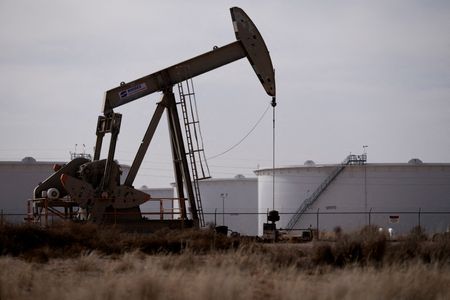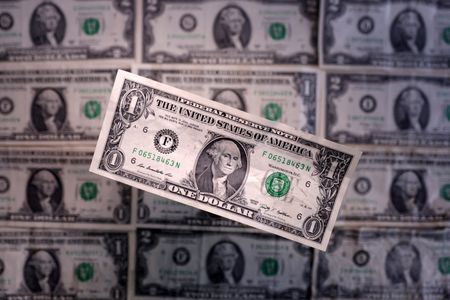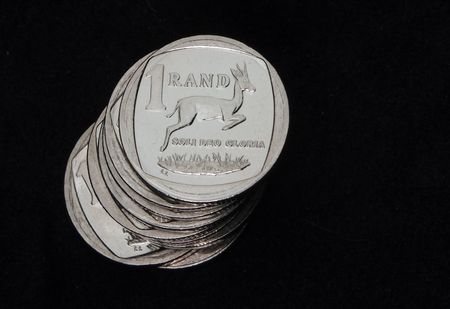By Arathy Somasekhar
HOUSTON (Reuters) -Oil prices settled higher on Wednesday after data showed a larger-than-expected drop in U.S. crude inventories and as investors weighed the potential impact from new U.S. tariffs on India.
Brent crude futures were up 83 cents, or 1.2%, at $68.05 a barrel. West Texas Intermediate crude futures gained 90 cents, or 1.4%, to $64.15. Both contracts fell by more than 2% on Tuesday.
U.S. crude inventories dropped by 2.4 million barrels to 418.3 million barrels last week, the Energy Information Administration said, compared with analysts’ expectations in a Reuters poll for a 1.9-million-barrel draw.
U.S. gasoline stocks fell by 1.2 million barrels compared with expectations for a 2.2 million-barrel draw. Distillate stockpiles, which include diesel and heating oil, fell by 1.8 million barrels versus expectations for an 885,000-barrel rise, the EIA data showed.
“The gasoline demand number is supportive and shows people are getting ready to travel over the Labor Day weekend. This is the crescendo of the summer driving season, also the last big hurrah for the summertime gasoline blend,” said Phil Flynn, senior analyst with Price Futures Group.
U.S. President Donald Trump’s doubling of tariffs on imports from India to as much as 50% was also in focus. The tariffs in response to India’s purchases of Russian oil took effect on Wednesday.
There was no sign of supply disruption so far, but uncertainty over whether the U.S. will target the oil flows is deterring some traders from taking new positions, said UBS analyst Giovanni Staunovo.
While the immediate impact of U.S. tariffs on Indian exports appears limited, the ripple effects on the economy pose challenges that must be addressed, India’s Finance Ministry said in its July monthly economic review, released on Wednesday.
Russia and Ukraine have also stepped up attacks on each other’s energy infrastructure, worrying traders about supply disruptions.
Russia launched a massive drone attack on energy and gas transport infrastructure across six Ukrainian regions overnight, Ukrainian officials said on Wednesday. Ukraine struck Russian oil refineries and exporting infrastructure in recent days.
U.S. special envoy Steve Witkoff said on Tuesday he will meet Ukrainian representatives in New York this week and that Washington is also in talks with Russia in an effort to end the war.
Russia has made an upward revision to its crude oil export plan from western ports by 200,000 barrels per day in August from the initial schedule after attacks on its refineries last week, three people close to the matter said on Tuesday.
New York Federal Reserve Bank President John Williams said on Wednesday that interest rates will likely fall at some point but policymakers will need to see what upcoming data indicate about the economy before deciding whether it is appropriate to make a cut at the September 16-17 meeting.
Lower interest rates can reduce consumer borrowing costs and boost economic growth and demand for oil.
(Reporting by Arathy somasekhar and Georgina McCartney in Houston, additional reporting by Mohi Narayan and Sudarshan VaradhanEditing by David Goodman, Rod Nickel and Nia Williams)








